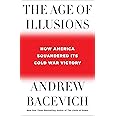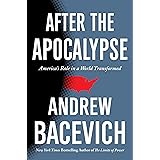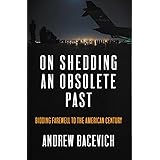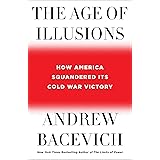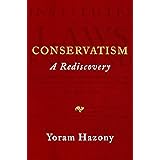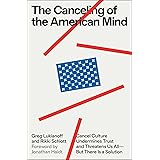
Enjoy fast, free delivery, exclusive deals, and award-winning movies & TV shows with Prime
Try Prime
and start saving today with fast, free delivery
Amazon Prime includes:
Fast, FREE Delivery is available to Prime members. To join, select "Try Amazon Prime and start saving today with Fast, FREE Delivery" below the Add to Cart button.
Amazon Prime members enjoy:- Cardmembers earn 5% Back at Amazon.com with a Prime Credit Card.
- Unlimited Free Two-Day Delivery
- Streaming of thousands of movies and TV shows with limited ads on Prime Video.
- A Kindle book to borrow for free each month - with no due dates
- Listen to over 2 million songs and hundreds of playlists
- Unlimited photo storage with anywhere access
Important: Your credit card will NOT be charged when you start your free trial or if you cancel during the trial period. If you're happy with Amazon Prime, do nothing. At the end of the free trial, your membership will automatically upgrade to a monthly membership.
Buy new:
-5% $28.57$28.57
Ships from: Amazon.com Sold by: Amazon.com
Save with Used - Good
$17.05$17.05
Ships from: Amazon Sold by: Mike's Books and Art

Download the free Kindle app and start reading Kindle books instantly on your smartphone, tablet, or computer - no Kindle device required.
Read instantly on your browser with Kindle for Web.
Using your mobile phone camera - scan the code below and download the Kindle app.

OK
American Conservatism: Reclaiming an Intellectual Tradition Hardcover – March 23, 2020
Purchase options and add-ons
A groundbreaking collection of mainstream conservative writings since 1900, featuring pieces by Ronald Reagan, Antonin Scalia, Joan Didion, and more
What is American conservatism? What are its core beliefs and values? What answers can it offer to the fundamental questions we face in the twenty-first century about the common good and the meaning of freedom, the responsibilities of citizenship, and America’s proper role in the world?
As libertarians, neoconservatives, Never Trump-ers, and others battle over the label, this landmark collection offers an essential survey of conservative thought in the United States since 1900, highlighting the centrality of four key themes: the importance of tradition and the local, resistance to an ever-expanding state, opposition to the threat of tyranny at home and abroad, and free markets as the key to sustaining individual liberty.
Andrew J. Bacevich’s incisive selections reveal that American conservatism—in his words “more akin to an ethos or a disposition than a fixed ideology”—has hardly been a monolithic entity over the last 120 years, but rather has developed through fierce internal debate about basic political and social propositions. Well-known figures such as Ronald Reagan and William F. Buckley are complemented here by important but less familiar thinkers such as Richard Weaver and Robert Nisbet, as well as writers not of the political right, like Randolph Bourne, Joan Didion, and Reinhold Niebuhr, who have been important influences on conservative thinking.
More relevant than ever, this rich, too often overlooked vein of writing provides essential insights into who Americans are as a people and offers surprising hope, in a time of extreme polarization, for finding common ground. It deserves to be rediscovered by readers of all political persuasions.
- Print length672 pages
- LanguageEnglish
- PublisherLibrary of America
- Publication dateMarch 23, 2020
- Dimensions6.31 x 1.72 x 9.3 inches
- ISBN-101598536567
- ISBN-13978-1598536560
The Amazon Book Review
Book recommendations, author interviews, editors' picks, and more. Read it now.
Frequently bought together

Customers who bought this item also bought
Editorial Reviews
Review
"A valuable collection. . . . Bacevich is not looking for agreement — this is neither an evangelistic credo nor a sort of Conservatism for Dummies. Rather, it is a collection of diverse thinkers generally inclined toward the causes of order and tradition, and the best articles have a solidity that can seem a bracing tonic for the present chaos." —Tim Page, The Washington Post
"A rich menu. . . . Bacevich’s selections evidence that conservative anxiety about the cultural consequences of modernity has a distinguished American pedigree."
—George F. Will, The New York Times Book Review
"Eloquent. . . . A collection of essays and speeches—mostly from the 20th century—that argue tacitly that today’s conservatism needs an intellectual reboot." —Kirkus Reviews
About the Author
Excerpt. © Reprinted by permission. All rights reserved.
The modern American conservative tradition—roughly dating from the dawn of the twentieth century—emerged in reaction to modernity itself. Modernity meant machines, speed, and radical change—taboos lifted, bonds loosened, and, according to Max Weber, “the disenchantment of the world.” It induced, and perhaps required, centralization. States accrued power. Bureaucracies thickened. Banks, corporations, rail systems, and industrial enterprises grew to mammoth proportions. War became more destructive.
Modernity promised liberation and for many did improve the quality of everyday life. Yet it also subjected individuals to immense and only dimly comprehended forces. In exchange for choice, it demanded conformity. Modernity demolished tradition or rendered it irrelevant. What remained of the past might retain interest as artifact but was drained of substantive relevance.
Liberals, progressives, leftists—choose what label you will—have tended to embrace modernity, seeing it, on balance, as a positive force. By comparison, conservatives have typically viewed modernity as a threat, responding to it with a mixture of apprehension, alarm, and horror. This anthology collects in a single volume noteworthy examples of the American conservative critique prompted by the encroachments of modernity.
That said, I am not suggesting that in the long, contentious, at times bitter debate about America’s purpose and destiny, proponents of conservatism have necessarily gotten things right. The issues being contested are too complex to allow for reductive judgments of right or wrong, good or bad. Yet in the crisis that has enveloped twenty-firstcentury America—a crisis made starkly manifest by Donald Trump’s election as U.S. president in 2016—conservative principles deserve a second look, even, or especially, from those who bridle at the very use of the term.
Skeptics might respond that Americans today already have more than ample exposure to conservative perspectives, whether coming directly from Trump’s White House, from megaphone-wielding House and Senate Republicans, or from outlets such as FoxNews, AM talk radio, and right-wing websites. Yet all of these qualify as conservative only in the sense that blue-chip recruits at a football factory qualify as “student-athletes.” Any resemblance to the real article is superficial and manufactured.
Donald Trump is not a conservative. Nor are the leaders of the Republican Party over which Trump presides. Prominent GOP figures such as Kentucky senator Mitch McConnell seem to adhere to no worldview worthy of the name. As for the provocateurs who inhabit the sprawling universe of rightwing media, their principal motive is not to promote genuine conservative values but to rabble-rouse and line their own pockets. Indeed, allowing Trump, McConnell, Sean Hannity, Laura Ingraham, Rush Limbaugh et al. to present themselves as exemplary conservatives testifies to the pervasive corruption of contemporary American political discourse.
So except among the multitudes who sport MAGA hats and look to the likes of Sean, Laura, and Rush for instruction, the conservative brand has of late been badly tarnished and even degraded. As a result, conservatism today has become synonymous with meanness, bigotry, and retrograde attitudes. The contents of this book suggest that this condescending characterization is wildly off the mark.
Product details
- Publisher : Library of America (March 23, 2020)
- Language : English
- Hardcover : 672 pages
- ISBN-10 : 1598536567
- ISBN-13 : 978-1598536560
- Item Weight : 2.3 pounds
- Dimensions : 6.31 x 1.72 x 9.3 inches
- Best Sellers Rank: #978,222 in Books (See Top 100 in Books)
- #1,848 in Political Commentary & Opinion
- #2,026 in Political Conservatism & Liberalism
- #3,751 in History & Theory of Politics
- Customer Reviews:
About the author

Andrew J. Bacevich grew up in Indiana, graduated from West Point and Princeton, served in the army, became an academic, and is now a writer. He is the author, co-author, or editor of a dozen books, among them American Empire, The New American Militarism, The Limits of Power, Washington Rules, and Breach of Trust. His next book America’s War for the Greater Middle East: A Military History is scheduled for publication in 2016.
Customer reviews
Customer Reviews, including Product Star Ratings help customers to learn more about the product and decide whether it is the right product for them.
To calculate the overall star rating and percentage breakdown by star, we don’t use a simple average. Instead, our system considers things like how recent a review is and if the reviewer bought the item on Amazon. It also analyzed reviews to verify trustworthiness.
Learn more how customers reviews work on Amazon-
Top reviews
Top reviews from the United States
There was a problem filtering reviews right now. Please try again later.
This lengthy anthology makes for slow, dense reading. It shows the varied character of the intellectual part of American conservatism. The individual selections are sufficiently long to present a position as opposed to being mere snippets. Most of the selections show a great deal of breadth as opposed to focusing on a particular issue. Some of the essays are more specific, such as Joan Didion's "The Women's Movement", Andrew Sullivan's essay, "Here Comes the Groom: A (Conservative) Case for Gay Marriage", and Shelby Steele's "Affirmative Action: The Price of Preference."
Bacevich's Introduction stresses the difficulty of defining American conservatism. He sees conservatism as more of a mood and a critique of modernity than a particular ideology. His anthology collects "noteworthy examples of the American conservative critique prompted by the encroachments of modernity." Somewhat brusquely and probably too harshly,, Bacevich excludes President Trump, most Republican members of Congress, and the popular right-wing media from his understanding of conservatism. He sees the need to "reclaim" conservatism as an "intellectual tradition" in part from what he sees as its current political debasement. Bacevich also excludes "neo-conservatism" from the American conservative tradition for reasons which to me are unclear. At the outset, Bacevich critiques conservatism for the positions it generally adopted on several large 20th Century issues: it opposed Federal intervention in the economy during the Great Depression, it opposed United States entry into WW II until the attack on Pearl Harbor, and, somewhat later, it took positions adverse to desegregation in the South. Still, Bacevich rightly resists over-simplification. Mistakes are not the within the sole purview of any political tradition. Bacevich's volume has the goal of showing that conservative intellectuals have a great deal to contribute to American thought and that the liberal tradition tended to ignore its insights to its detriment.
Broadly, conservatism encourages understanding and respecting tradition and the lessons of the past. Bacevich sees conservatism, in general, as involving a commitment to individual liberty, a belief in limited government and the rule of law, veneration for America's cultural inheritance, a reluctance to tamper with traditional social arrangements, a cautious respect for the free market, and a strong wariness of utopianism. The anthology includes several essays by writers not generally regarded as conservative but whose work tends to support certain conservative themes, including, among others Christopher Lasch, Reinhold Niebuhr, and Walter Lippmann.
The anthology consists of five parts. The first, "First Principles: Three Responses", includes three
essays by leaders of American conservatism in the mid-twentieth century on the nature of conservatism, all of which stress its non-ideological character. Russell Kirk's opening essay develops six conservative principles but warns that "they are to be taken as a rough catalog of the general assumptions of conservatives and not as a tidy system of doctrines for governing a state." William F. Buckley Jr's essay discusses the varied forms of conservatism within the context of his founding and editing the "National Review". Buckley points to various strands in conservatism while suggesting that "the symbiosis may yet be a general consensus on the proper balance between freedom, order, and tradition." The concluding essay by Frank Meyer works to reconcile the traditionalist and the libertarian elements in conservative thought, elements which are often seen as at odds.
The second and longest part of this anthology is titled "The Fundamentals: Tradition, Religion, Morality, and the Individual". This part includes the earliest work in the book, Henry Adams chapter on "The Dynamo and the Virgin from "The Education of Henry Adams" (1900). There also is an eloquent selection from the philosopher George Santayana on "Materialism and Idealism in American Life." The authors in this part that I particularly enjoyed include Zora Neale Hurston ("How it Feels to be a Colored Me"), Irving Babbitt, a once-well known figure who deserves to be more read, Whittaker Chambers, the historian Harry Jaffa, with reflections on Lincoln's Gettysburg Address, Allan Bloom, and Christopher Lasch, in a chapter titled "The Soul of Man under Secularism."
The third part of the anthology, "Liberty and Power: The State and the Free Market consists of eight contributions on the nature of the state and on economics. Richard Weaver was an influential figure in the development of modern conservatism. He is represented by "The Great Stereopticon" from his 1948 book "Ideas have Consequences" which warns of the prevalence of shallow thinking in the daily media and of the dangers of ignoring history and philosophy. Other notable contributors to this part are Milton Friedman, Irving Kristol, and Patrick Deneen.
Regionalism and localism as a partial antidote to centralization are explored in the fourth part of the anthology, "The Ties that Bind: The Local and the Familiar". The sociologist Robert Nisbet's essay "The Loss of Community" discusses the importance of communitarianism to overcome the alienation and mechanization of much contemporary life. The three essays in this part by John Crowe Ransom, Eugene Genovese, and Wendell Berry, each explore the lessons that might be learned from agrarianism in the South.
The final part of this anthology, "The Exceptional Nation: America and the World" offers views on the nature of the United States and of its relationship to other nations. A variety of positions are offered most of which, with the exception of Theodore Roosevelt's "The Strenuous Life" counsel a degree of caution in the over-extension of the United States' overseas commitments. The contributors to this section include Henry Cabot Lodge, James Burnam, Robert Taft, Ronald Reagan, and Reinhold Niebuhr from his 1952 book, "The Irony of American History".
Many of the highly thoughtful essays in this volume may offer guidance to the United States in a difficult, divided time. The goal of the volume is less to convert readers to a form of conservatism and more to encourage reflection and the life of the mind in addressing critically important matters that sometimes tend to be slighted. As Bacevich states in his Introduction: "My firm conviction is this: to understand how the United States arrived at its present confused and divided straits -- and perhaps even to begin navigating back toward less troubled waters -- the American conservative tradition offers insights worth considering. I invite readers of this volume to consider that proposition." The Library of America and Bacevich deserve thanks for this volume and for their effort to revitalize consideration of conservative thought.
Robin Friedman
Many of the meatier offerings, some excellent, divide into two main streams. One is libertarian as one might expect, at times extreme. Milton Friedman, in an essay mainly devoted to an effective defense of capitalism, opines that required participation in Social Security and requiring surgeons to be licensed are assaults on freedom, opinions no doubt intellectually consistent but socially disastrous if put into practice. Albert Jay Nock describes the 1932 election as a coup d'Etat, and Murray Rothbard sees "no satisfactory rational argument in support of the state."
The other, opposed, stream laments the triumph of untrammeled individualism (exactly what libertarians praise), self-fulfillment as a guiding goal, and the weakening of communities intermediate between the individual and the state (family, church, neighborhood and so on). Such communities anchor individuals, restrain their behavior (more by custom than by law) and lessen alienation. Both streams agree on a conservative priority: a smaller and less powerful state. This is obvious for libertarians; the communitarians point out that in the absence of effective local communities only the state restrains anarchy.
Some of the most thought-provoking essays have more specific topics: Shelby Steele opposing affirmative action; Andrew Sullivan supporting gay marriage on conservative principles; Joan Didion attacking some forms of feminism; Antonin Scalia's dissent in Obergefell; William Pfaff seeking a less interventionist foreign policy. There is also a thoroughly malevolent essay by John Crow Ransom, a paean to a wholly imagined ante-bellum rural South. Just one sentence addresses slavery, the economic basis of that (white) society of "leisure and security", describing it as "more often than not, humane in practice."
On the whole, a mixed effort. Of the 44 essays, I tagged 14 as worth reading.




